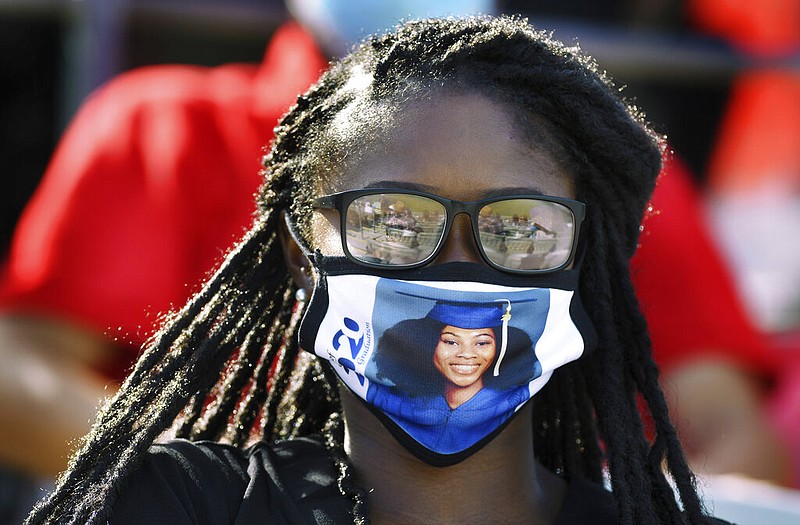As the medical director of pulmonary and critical care at CHI Memorial Hospital, Dr. Carlos Baleeiro understands the important role that face masks play in battling the coronavirus pandemic. He's also no stranger to the misinformation people use to justify not wearing them.
"The big ones I hear are, 'If the masks work, why do we need to social distance?' And, 'If they don't work, why do we have to wear them?' And, 'If social distance works, why do we need to wear masks at all?'"
Many of Baleeiro's patients have chronic lung disease, making them more vulnerable to the serious and deadly effects of COVID-19.
Now that most people in Hamilton County are required to wear face masks in public, Baleeiro said misinformation has led some of those same patients to ask him to write medical exemptions so that they're exempt from the mask mandate.
"I have patients who are chronically on oxygen, and they put their oxygen on their nose, they put the mask over the oxygen. It's not enjoyable, but they can breathe just fine," he said.
One of the early misconceptions about face masks was that only sick people need to wear them. But studies now show asymptomatic and pre-symptomatic spread of COVID-19 are much more common than originally thought.
"Because it is possible to have and transmit COVID-19 without showing any symptoms, you could have the virus without knowing it. This is why wearing a mask is so important - even if you aren't sick," said Betsy Chase, director of infection prevention at Parkridge Health System.
The cloth face coverings and masks that are recommended for the general public aren't necessarily designed to protect the wearer, but Chase said that doesn't mean people shouldn't wear them.
"Masks decrease your risk for contracting the novel coronavirus but do not offer full protection. For optimal protection, do the following: practice good hand hygiene, avoid touching your face and eyes, maintain recommended social distancing practices and wear a mask," she said in an email, adding that masks should cover the mouth and nose and should not be used on children under two years of age.
Another myth Baleeiro said he's seen circulating among his patients and on social media is that "the masks are so tight that they block oxygen and carbon dioxide atoms," which - according to the myth perpetuators - limits your ability to breathe or makes you sicker from "rebreathing your infections."
"At the same time that they block atoms, they're so porous that the virus can just fly through, so they offer no protection," according to the myth, he said. "It shows that people are not being consistent with the understanding of science."
Baleeiro said masks don't seal tight enough to block the flow of oxygen and carbon dioxide molecules, which are much smaller than the infectious respiratory droplets face masks are designed to trap.
But out of all the misconceptions, Baleeiro said the most harmful ones center on the idea that masks aren't worth wearing unless they're 100% effective, and since they're not, why bother?
"There's very little that we do in life that you get 100% certainty," he said. "If we did not wear seat belts, because they're not 100% effective, if we did not look both ways before crossing the street, because sometimes there may be a blind spot or car coming by, we would be in big trouble."
"There is a lot of benefit in between zero and 100 from wearing a mask," Baleeiro said. "The more people that wear the mask, the more protection and the more benefit there is."
Contact Elizabeth Fite at efite@timesfreepress.com or follow her on Twitter @ecfite.
